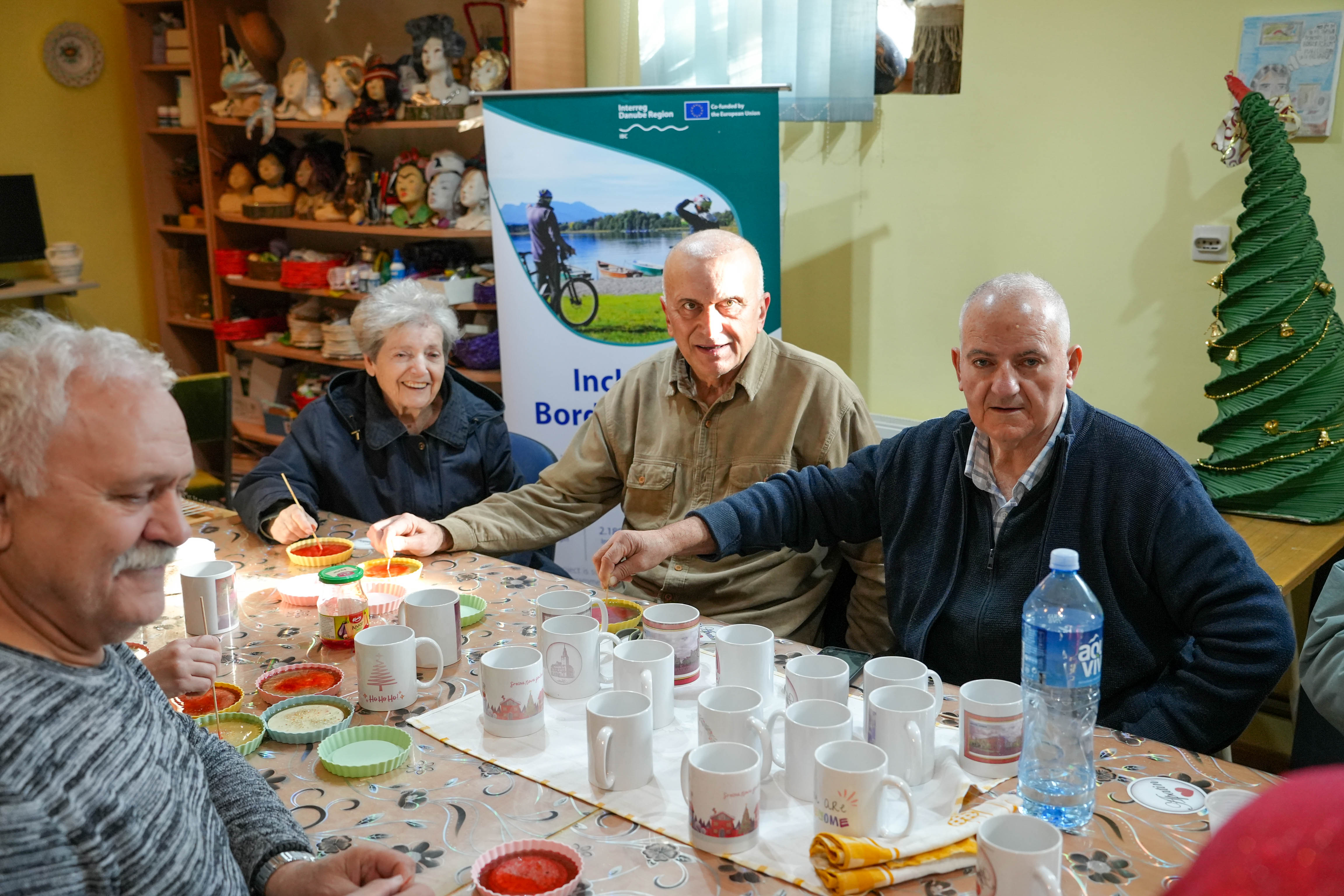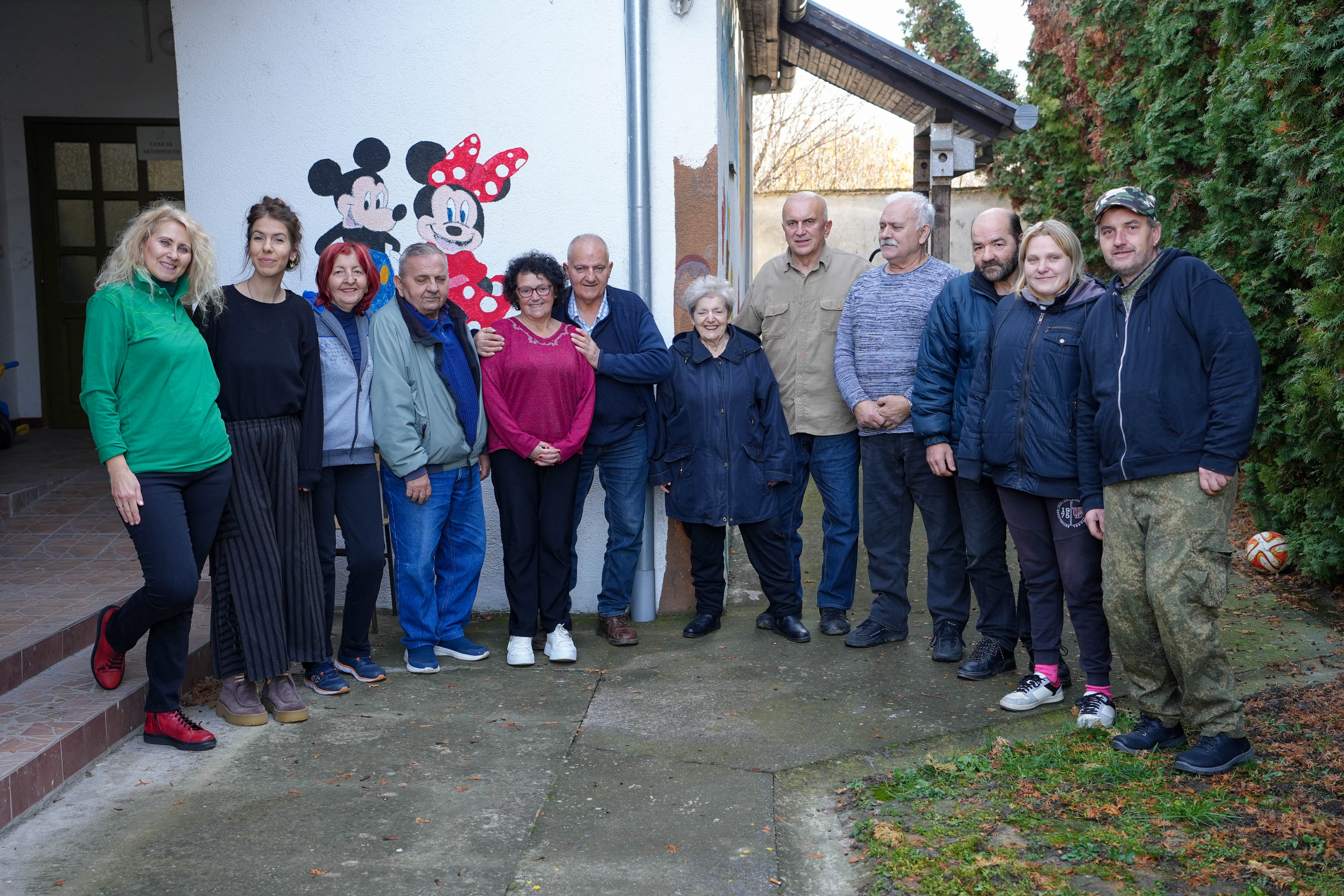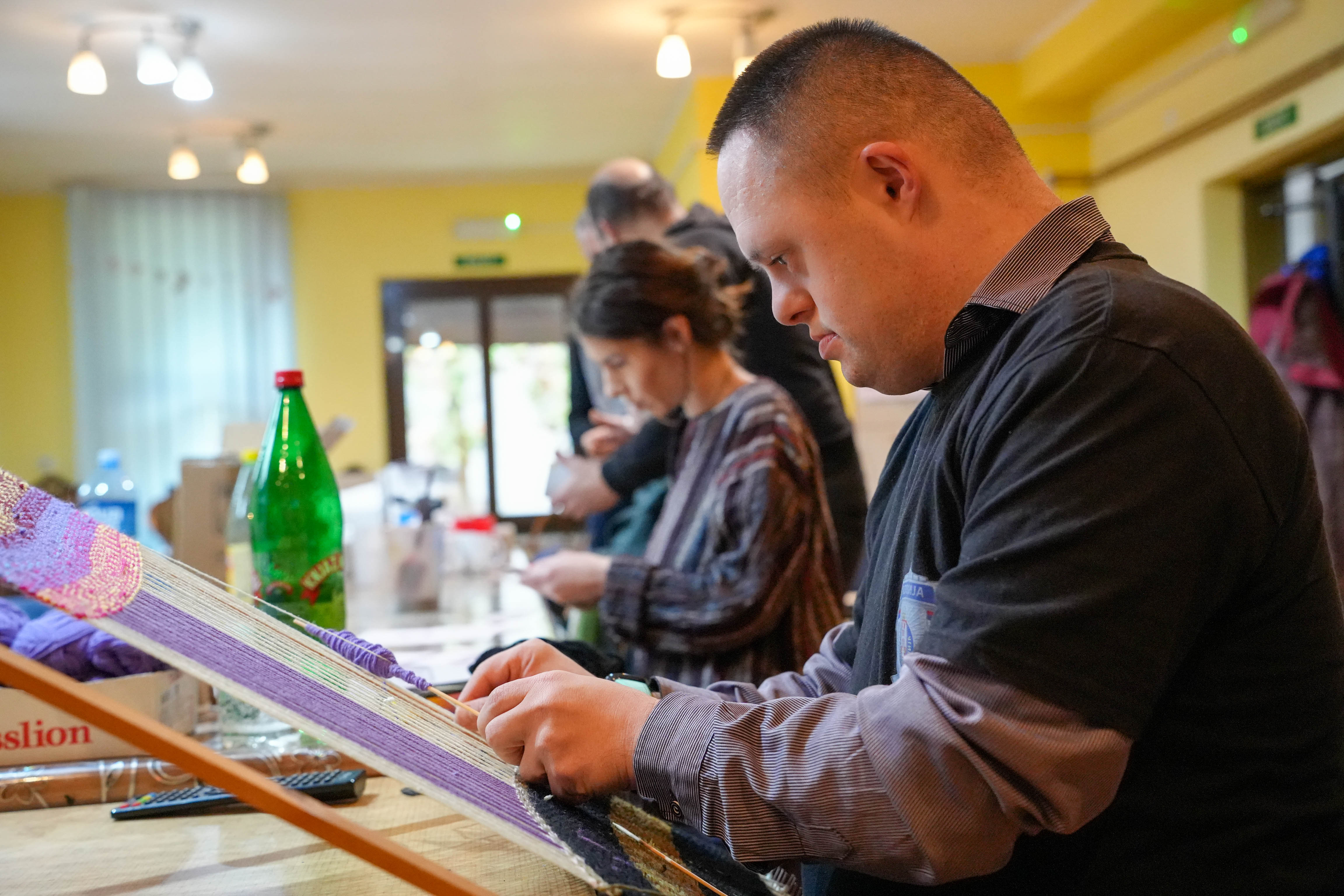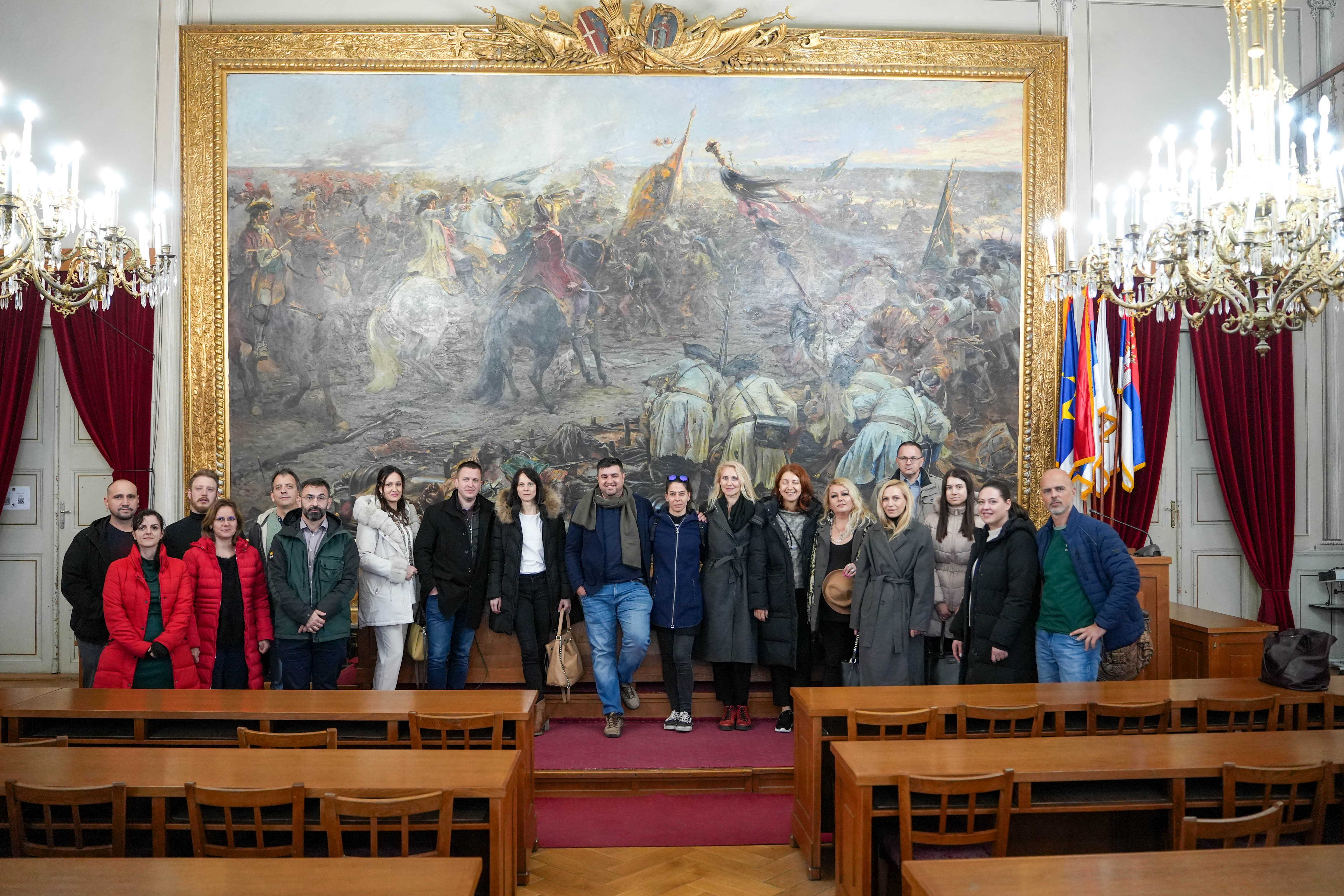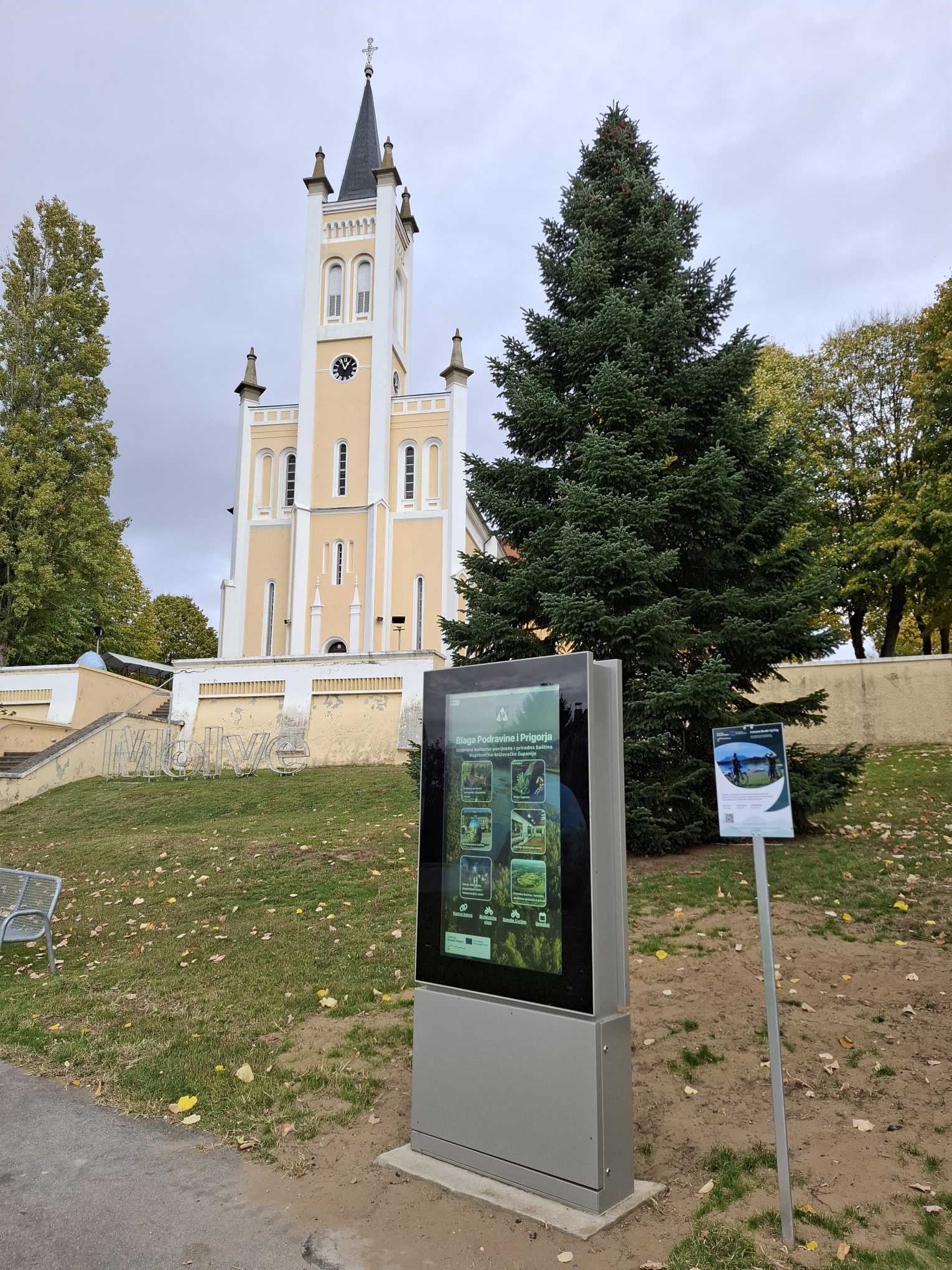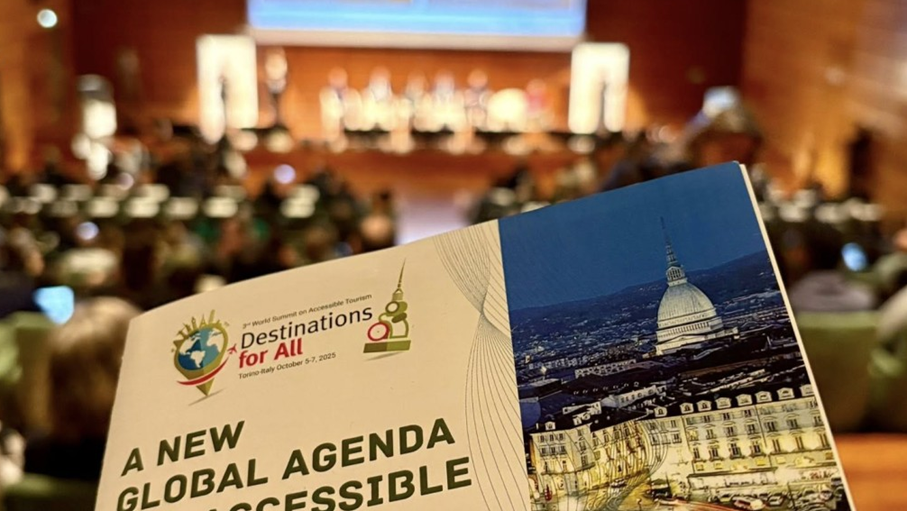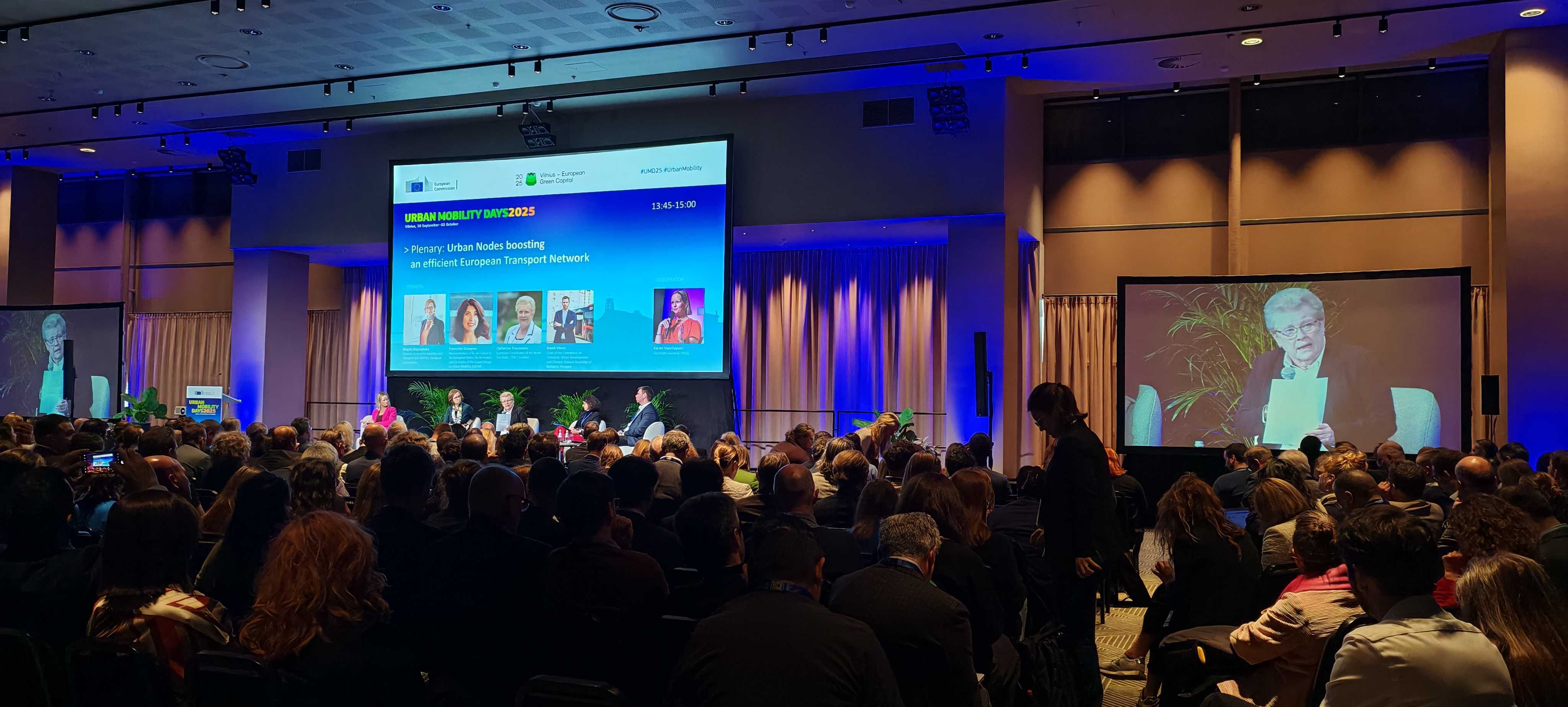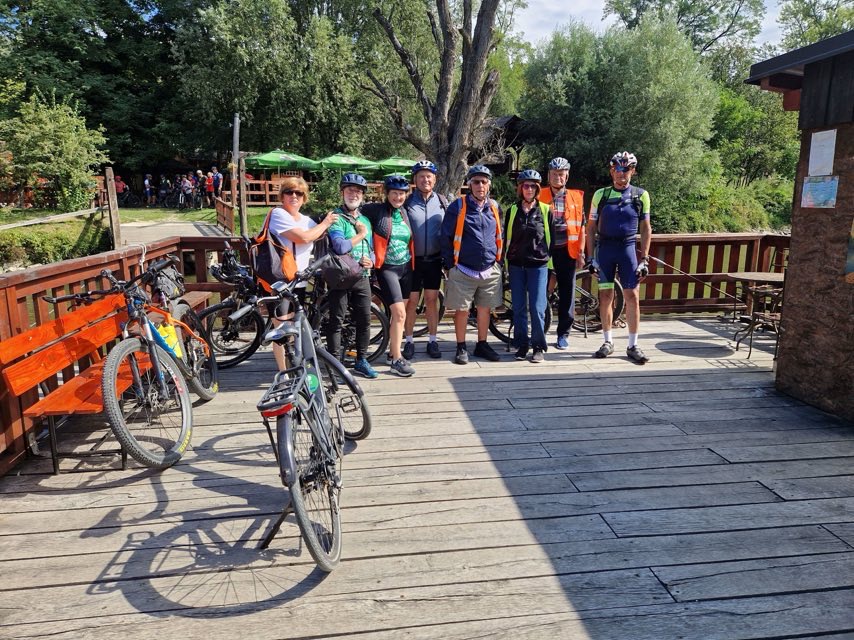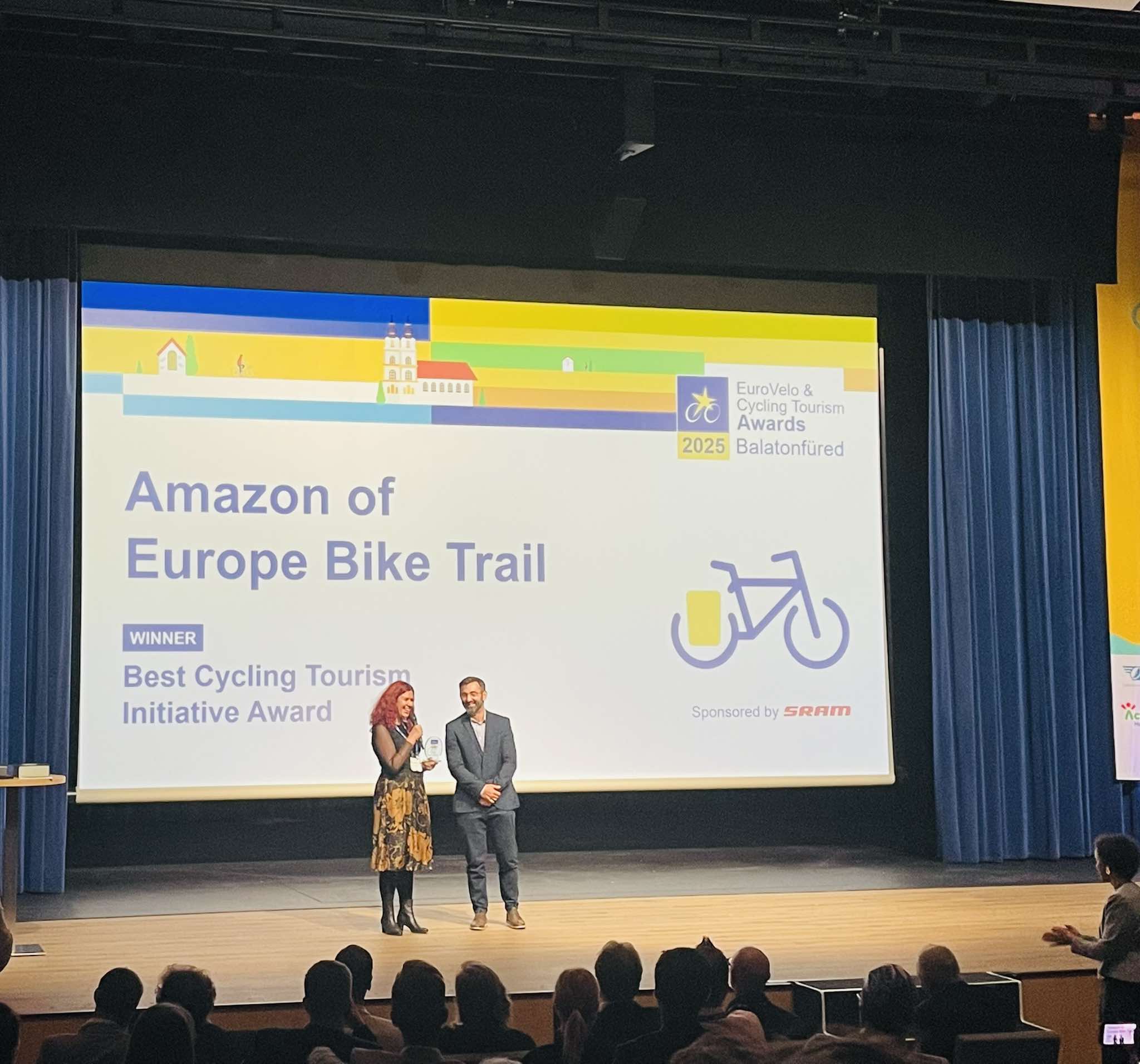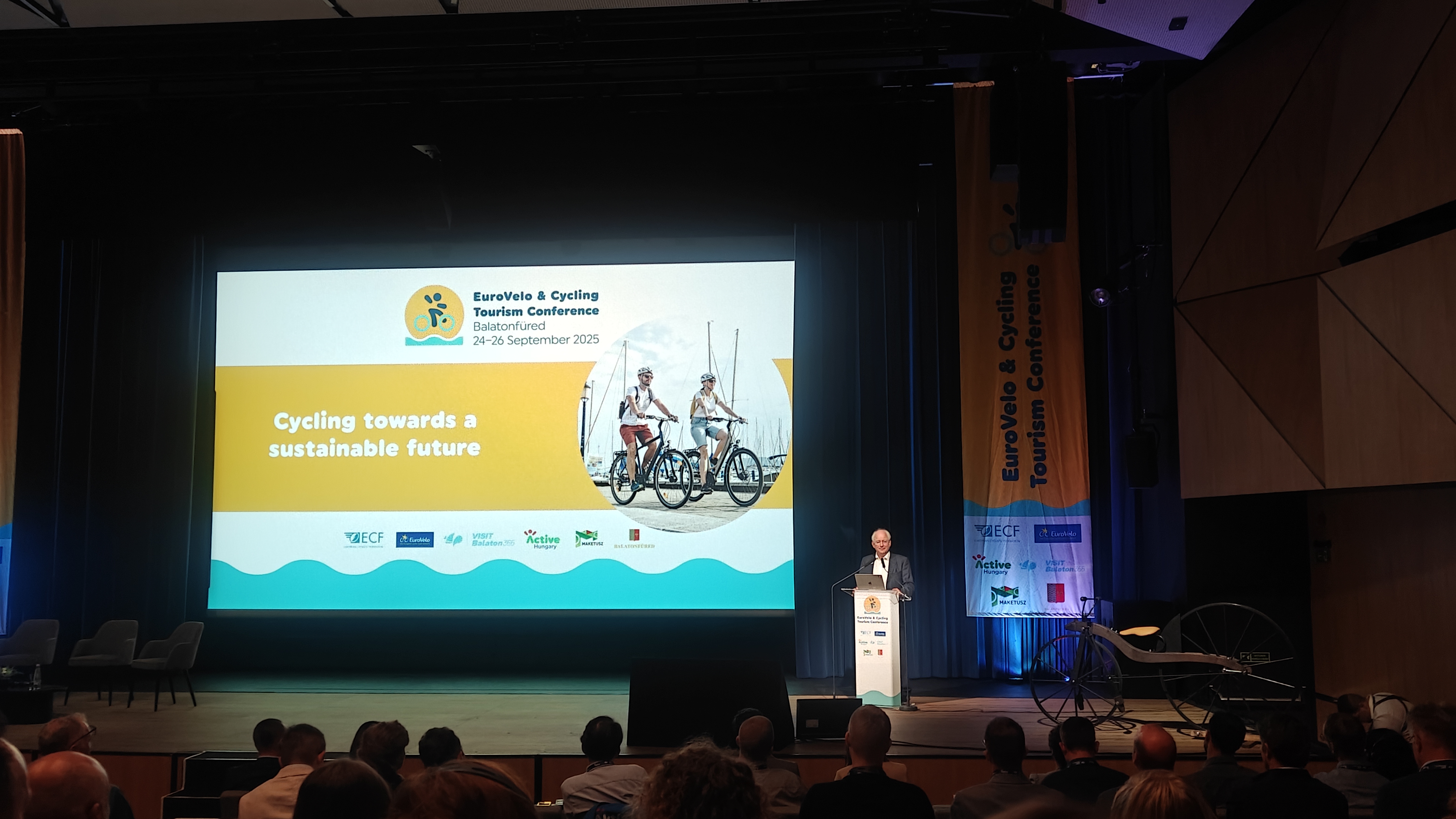
Inclusive Border Cycling at EuroVelo & Cycling Tourism Conference 2025: Actively co-creating the future of cycling tourism
Inclusive Border Cycling (IBC) partners attended and participated at the international EuroVelo & Cycling Tourism Conference 2025, which took place on September 24–26, 2025, in Balatonfüred, Hungary. The conference, organised by the European Cyclists' Federation (ECF) and Active Hungary Development Centre, brought together experts, visionaries and representatives of local communities from 31 countries, with the aim of creating sustainable and inclusive cycling initiatives across Europe.
As IBC has also been recognised recently by coordinators of the EU Strategy for the Danube Region as a Danube Strategy Flagship for culture and tourism, two speakers were invited to represent our partnership, reporting on lessons learned from successful cycling initiatives, supported by the Interreg Danube Region Programme - the IBC and Amazon of Europe Bike Trail. Our project partners contributed to the discussions on the future of cycling tourism as panellists and content co-creators.
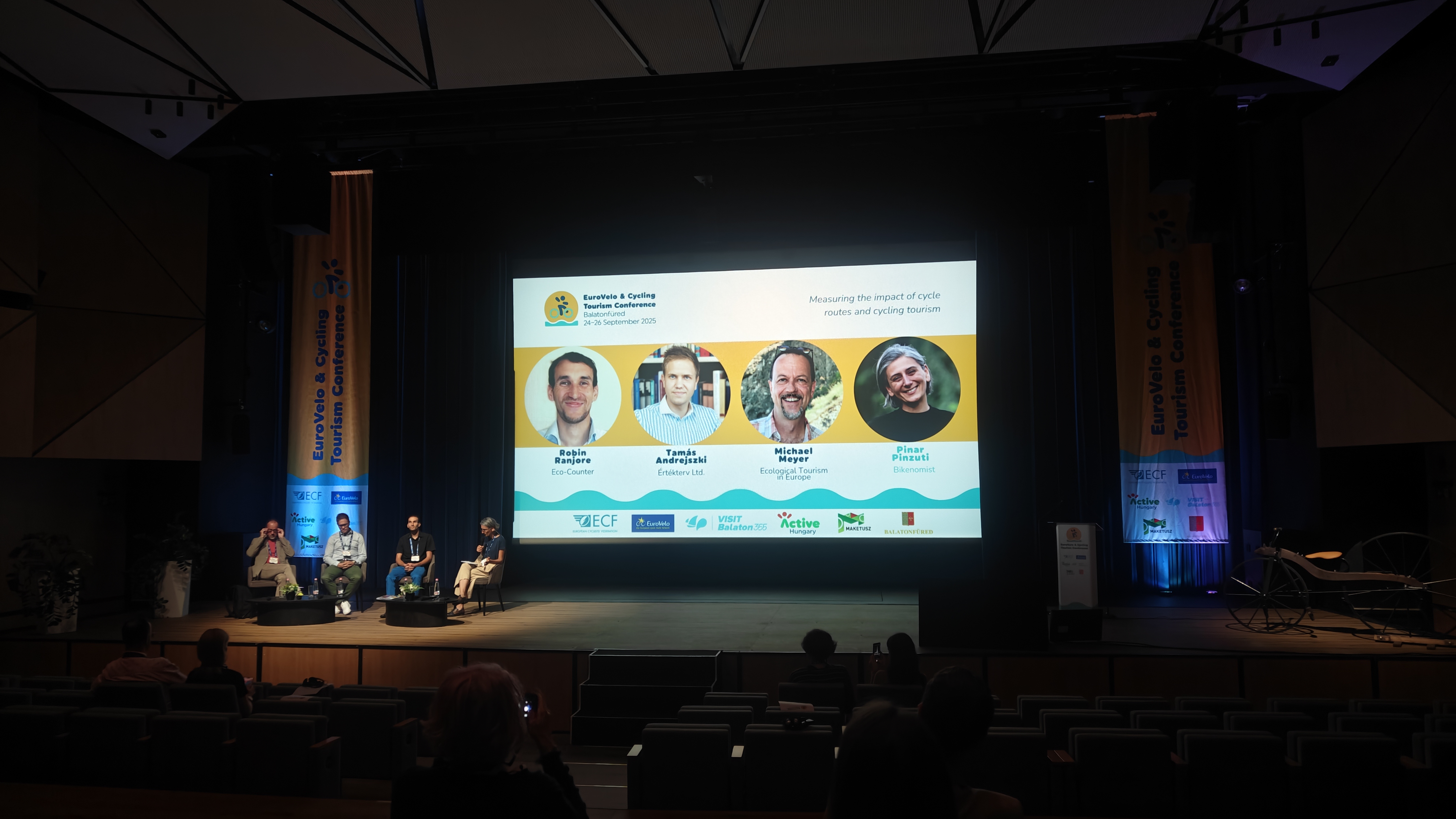
In his initial address at the EuroVelo Conference in Balatonfüred, Henk Swarttouw, President of the European Cyclists’ Federation, underscored the guiding principle of the cycling movement with the concise but powerful message:
More and better cycling for all.
By stressing both “more” and “better,” Swarttouw pointed to the dual challenge: increasing the number of people who cycle, while simultaneously ensuring that the cycling experience is safe, comfortable, and enjoyable.
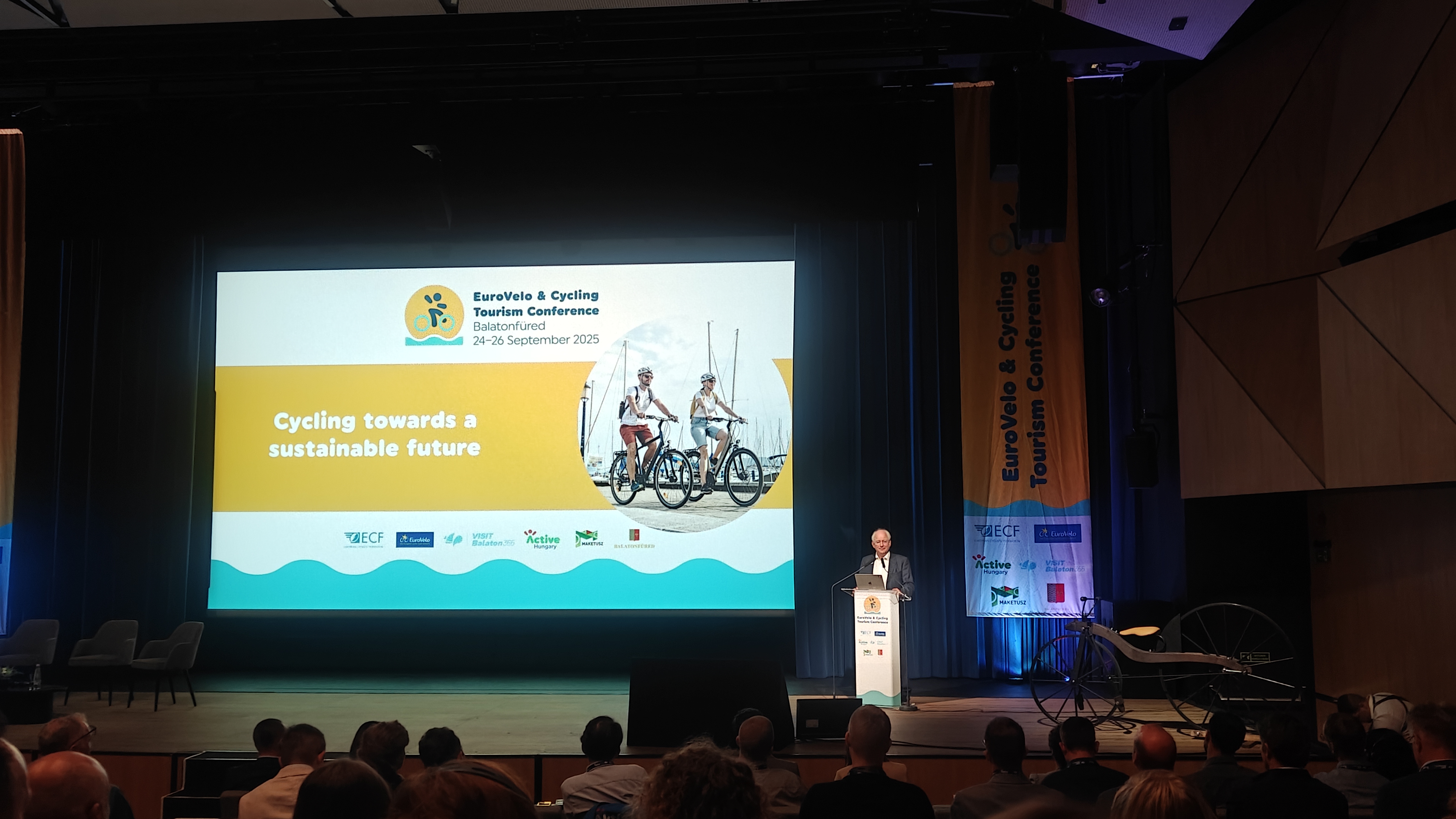
"Inclusive tourism, important for building business opportunities for local providers"
Urška Dolinar, co-founder and director of the Iskriva Institute, presented the process of establishing the Amazon of Europe Bike Trail through EU-funded projects (AoE Bike Trail, Amazing AoE, SMARTER AOE). This cross-border cycling route connects five countries along the Mura, Drava, and Danube rivers. As a guest speaker at the panel discussion Making the Most of Funding for Cycling Development Projects, she emphasised the importance of inclusive tourism, which creates business opportunities for local providers—from farmers and craftsmen to accommodation hosts. She highlighted how thoughtful financing and close cooperation with local communities can stimulate economic development while safeguarding natural and cultural heritage.
In the same panel, Tibor Polgár, strategic director of Westpannon, built upon these themes with a complementary perspective, focusing more strongly on the role of regional coordination of EU-funded projects for developing cycling infrastructure and tourism. He underlined that development needs to take place on all levels—from local to international—but stressed that the regional level holds particular importance, as it has the greatest potential for impact when actors work in horizontal cooperation across sectors and borders. His presentation demonstrated how strategic and coordinated use of European funding (projects such as ICTr-CE, IBC, SMART Pannonia, CycleRight) can accelerate cross-border collaboration, strengthen local economies, and ensure that cycling initiatives are embedded in broader regional development strategies. Together, Dolinar and Polgár illustrated how inclusive approaches and effective use of funding can turn cycling projects into long-term drivers of sustainability and prosperity.
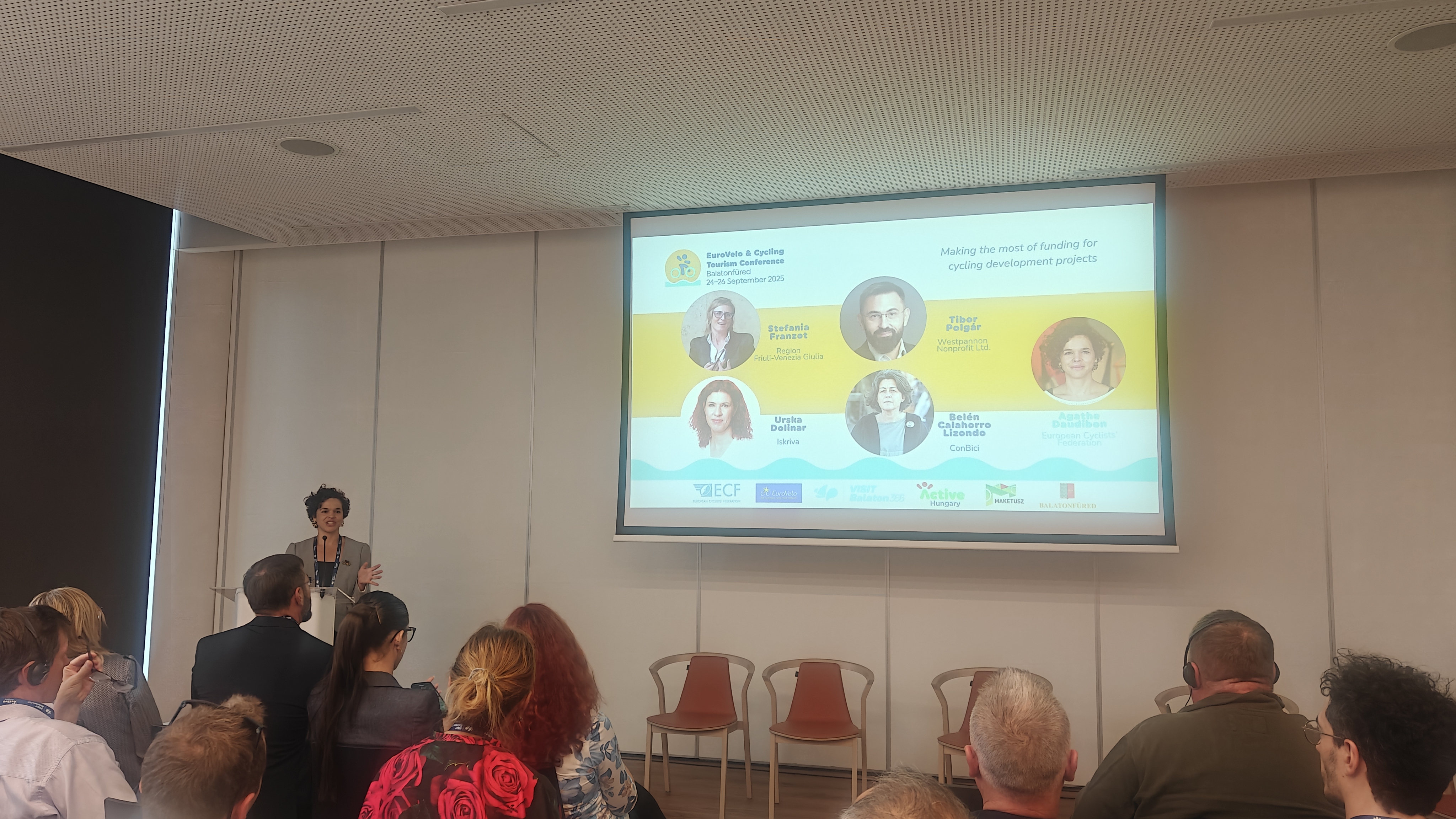
The European Cyclists' Federation (ECF) presented awards in two categories:
Best Cycling Tourism Initiative Award - for the best tourism initiative related to cycling,
Best Cycle Route Development Award – for the best development of a cycle route.
Amazon of Europe Bike Trail receives the Best Cycling Tourism Initiative award 2025
The Amazon of Europe Bike Trail also became the first recipient of the Best Cycling Tourism Initiative 2025 award, presented by the European Cyclists' Federation (ECF) at the conference. The award recognises projects that combine sustainability, innovation and a positive impact on local communities and the environment. The Amazon of Europe Bike Trail project, which connects five countries along the Mura, Drava and Danube rivers (Austria, Slovenia, Croatia, Hungary and Serbia), was selected for its unique vision – not just as a tourist route, but as a sustainable development project that connects nature, culture and people.
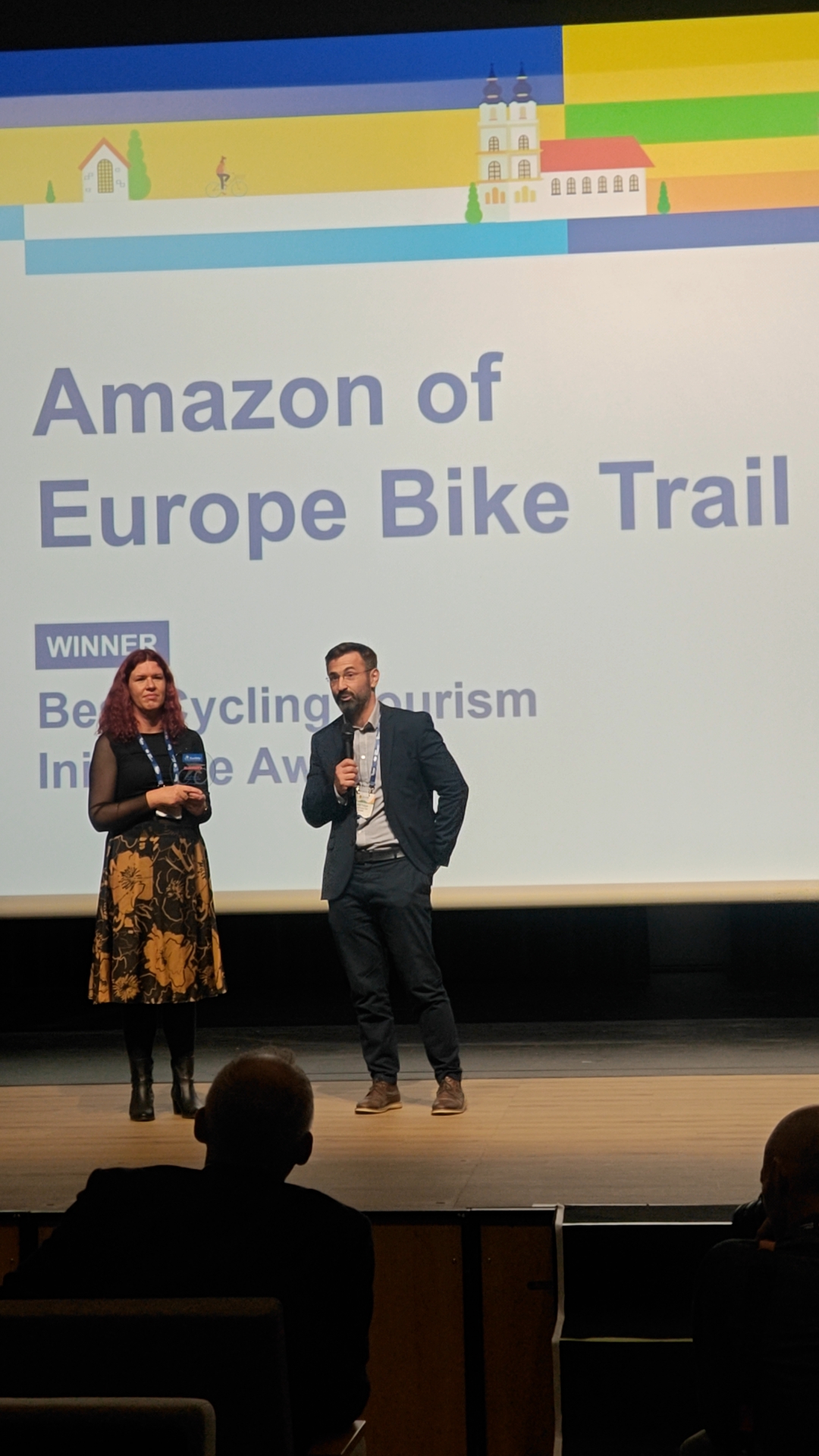
Western Pomerania receives the Best Cycle Route Development Award 2025
The award was received by Wanda Nowotarska, Cycling Representative of the Marshal of the West Pomeranian Province: "It is a great honour to receive such a prestigious award. Our network of bicycle routes is not only infrastructure—it is an opportunity to discover the region, promote sustainable tourism, and show that bicycles are really changing the lives of our residents," she emphasised during the gala.
In her speech, Wanda Nowotarska also thanked her team from the Marshal's Office's bicycle communication department and the residents who have fallen in love with the new routes. She noted that thanks to consistent investments, many people have started using bicycles, cycling tourism and recreation have become accessible to a wider group, and the infrastructure has contributed to the revitalisation of many areas. She also thanked Marshal Geblewicz for his decision to implement the project and for entrusting the investment to be carried out in accordance with our vision and best European practices.
Purpose and content of the conference
The conference was intended to exchange ideas and good practices for the development of cycling tourism that supports sustainability, innovation and cooperation. Participants discussed how cycling routes such as EuroVelo and Amazon of Europe Bike Trail not only attract tourists, but also revitalise rural areas, reduce carbon footprint and strengthen local economies. The Amazon of Europe Bike Trail was highlighted as an example of a project that combines nature conservation goals with economic and social benefits, as it connects five countries and promotes the preservation of one of the last wild river landscapes in Europe.
We would like to finish this news by giving another statement from the ECF president, Henk Swarttouw:
The cycling path does not care who is cycling on it.
With this phrase, Swarttouw drew attention to cycling as an inherently democratic form of mobility, one that removes social barriers and encourages interaction among diverse groups of people. It serves as a reminder that investments in cycling infrastructure yield benefits across society, promoting cohesion, health, and sustainability in equal measure.
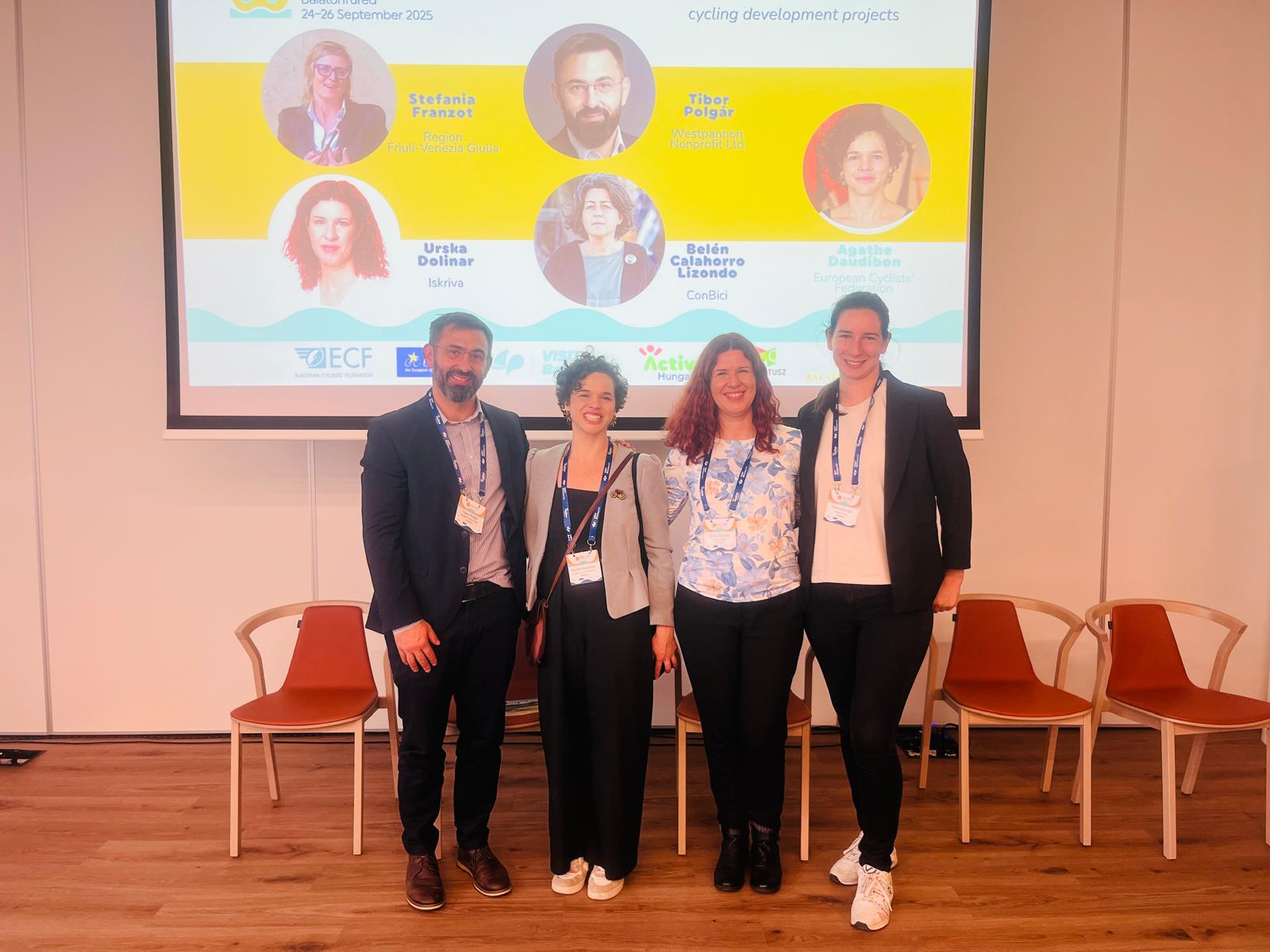
News & Events
Read the most recent updates and explore the upcoming events.

